Maliha is an Assistant Producer currently working for Queen Mary Arts and Culture, working on events and exhibitions at the university. I speak to her about just starting out and looking for a creative job in the arts. She talks about having to change her career path a bit as she struggles to find a job that allows her to be creative, and all the great experience this change of plans has brought her. She now is happy to be creative on the side, making art and writing poetry. I think that she is a real role model, someone who is quietly confident in herself and makes the most of every opportunity and experience.
To give you some background, I met Maliha this time last year at an art exhibition named Raging Sea. We were both working on the event as Assistant Producers for QTemps, which is Queen Mary’s temp job service. We were put on the front desk together checking people’s tickets, and so ended up talking for about six hours, only sometimes remembering that we were there to actually do a job. Towards the end of the night we were talking about our journeys home, and realised we actually lived on the same road, opposite each other! On top of that weird coincidence, we found we have a similar interest in art and working in events. Maliha asked whether I’d like to volunteer with her working on another art exhibition, “Galvanise”, at Spitalfields Studios in Whitechapel, where she and her dad share an artist studio. We’ve been friends and occasionally colleagues ever since!
We met up in a coffee shop round the corner from Maliha’s house, close to where I used to live – it was a very nostalgic moment! Maliha is worried about bumping into someone she knows from school, because apparently everyone she knows comes to this coffee shop. I think that would’ve been a good thing - she could’ve said “oh, I’m just here being interviewed for a magazine about my career!”.
Can you introduce yourself to the reader?
I’m Maliha, I’m 22, I graduated from Queen Mary last year, and I like art and writing.
I’d really like to ask you about growing up with an artist Dad. Would you say that your dad influenced you, or encouraged you to pursue art?
Definitely! He would take me and my sisters to art workshops at the Docklands Museum when we were kids. We did art competitions at Rich Mix [a community arts hub in Shoreditch], but we weren’t allowed to win because our dad was the judge! He used to take us to his studio as well – it was a whole day out for us. He used to say “try this, try that”. We always had art stuff at home: watercolours, pastels, paints. We’re lucky, some people don’t have that. For summer holiday homework projects, we used to use our dad’s stuff and make something super excessive. I realised I liked borrowing his stuff, and I just kept doing it! Art has always been there in the background for me, whether I was making it or not, because my dad was always doing art.
It's interesting to hear about how your dad has influenced your art, as your art styles are so different! What does he think about your art?
He’s very honest about what he thinks about my work. You know how when you show your friends your art as a kid and they’re going to say, “That’s amazing!”? My dad will go, “That’s good! You should think about the shadows there and the shading there!”, and “You should clean this up!”. He’ll just give his opinion, and sometimes you don’t want that! No, but he does like my art. He wants me to try abstract art, which is what he likes to make, but he does like mine, even though it’s different from what he’s used to.
Have you ever thought about going down the route of what your dad does, and sell the art that you make?
I don’t really think about selling art. I think it’s because I only have three canvases, and I’m emotionally attached to them all – I can’t imagine making something and just giving it away. I make my art with a vision, and with a message in it. Especially because of the journey of creating a piece, it’s weird to give it away to someone, unless I made it specifically for them. But I do want to eventually put on my own art shows someday… when I have more than three canvases!
What is your creative process when you make your art, and are there any influences behind it?
I make Islamic art, which is a weird term, I think a lot of the time it’s understood differently. A big part of more traditional Islamic art is calligraphy, which I haven’t done. It’s a bit less traditional than what I typically assume as Islamic art, and it’s novel for Western art.
My process for my first canvas, which began in lockdown, started with a song, ‘Tala ‘Al-Badru ‘Alayna’. There’s a story where this was sung when the Prophet, peace be upon him, arrives at Madinah after the migration, and the people are celebrating his arrival. I was inspired by the title line, which translates to ‘O the white moon rose over us.’ I drew a mosque because I saw it on Pinterest and just thought I’d try – I’d never drawn one before. That’s kind of how it works. I find something that moves me, whether it’s a story or a verse, and it will give me an idea. I’ll scroll through Pinterest and put something together. Sometimes I plan my work, like the canvas that I gave to a friend for her birthday, but I’ll never do a pencil outline first. It feels too rigid. I just start drawing with my pen, and hope for something to come out of it.
Can you tell me a bit more about your year-long placement with Creative Access?
It was a very different atmosphere from art exhibitions and events, because my placement was in corporate events. I was a trainee Project Co-ordinator. One of my best experiences is when I got to travel to Rome for an event. You don’t get to do that in a lot of jobs, and I was the first one in my house and of my friends to get to travel abroad for work. I missed the arts while I was working there, though. You get to work with people, but you work with them on a more professional basis than the more personal basis of the arts. Your professional selves get to meet, but it’s not personal, not like when you are making and sharing art. I think working with people in the arts is more interesting, and you learn more about yourself through that.
You decided to leave your job instead of accepting a full-time position as a Project Co-ordinator because you wanted more of a work/life balance. Now you’ve left, have you found some more time to make any art?
I have been to the studio a few times, but each time I’ve found it hard to think of what I should make. I tried gouache painting, which I’ve never done before. It’s softer than acrylic, easier to manage than oil paint, and not as annoying as water colour painting. I hate watercolour painting!
It can be hard to think of ideas because in Islam we can’t draw animate beings, so I can’t draw human portraits or animals. When I first properly got into drawing, when I was about twelve, that was all I drew. So, I had to give that up, because I put my faith first. That’s how I got into drawing mosques during lockdown. It’s about finding things that I can draw that convey a message, and do justice to whatever it is that I’m trying to make. I’m worried about making too many canvases that are all identical. Another thing is I build up a whole idea in my head that I feel I can’t recreate on paper. Which is why I work best with a pen, and just doing it. It’s better than planning it excessively in my head, then not liking what I come up with.
Imagine you are given complete control over the arts and culture industry, probably by Greta Gerwig and/or an army of Barbies. What are some changes that you would make?
Firstly, I would keep AI far away from it! Unfortunately, I think that will become the new thing [for context, Maliha recently put together an exhibition on AI, and she hates it]. Put funding back into the arts! Stop cutting the funding! This whole notion of the office job being a legit job and the arts job is just a fun little hobby is so backwards. It’s not doing anyone any favours. Look at the WGA strikes. Now that the creatives in the industry are on strike, people are actually thinking about the work that they do. Now no one has their Netflix shows, they’ve realised how much the arts means. You take it for granted that the artists love their work so much that they continue to do it, even though they are not making enough money from it. Nobody understands how vital it is, until it’s not there anymore. We are just lucky people love their art enough to keep doing it.
A similar thing is playing out with university staff, who are striking at the minute. People working in schools and universities do so much, and they’re just taken for granted.
Exactly. When they go, the education system collapses in on itself. Some of the things I do in my art now are influenced by my primary school art teacher! She never let us use rubbers, we always had to work with our mistakes. She’d say “You’ll just have to work around it. You can fix it, or you can use it somehow.” After that, I barely ever did pencil drawings. Even now, I use pen instead of pencil, because you can’t rub it out. I got into writing because of my Year 8 English teacher, who introduced me to Sarah Kay’s spoken word. A couple of years later, I went to watch Sarah Kay perform live, and she signed my copy of her poetry. She inspired me to start writing myself.
Teachers play a bigger part than people realise. Subjects like English and Art are viewed as disposable, because it’s not something that you can easily generate into a money-making thing. Everything is valued in terms of an end product. How good or useful something is is judged by how much money it can make. If you’re not putting any money into the arts, how are you expecting money to come out of it? Spitalfields Studios [where Maliha and her dad rent a studio space] is run out of pocket. If a curator is putting on a show there, they’ll be paying for it themselves. All our time volunteering at the Studio was unpaid, because no one can pay us. We pour the benefit out into the community putting on shows, but we are doing all of this unpaid.
Could you tell me more about your writing, and your influences?
Sarah Kay was the first poet I was introduced to, and she has a poem called “Point B”, that I heard when I was 14 or 15. It was the first time I’d read poetry, before I didn’t know much about it. After that, I got into Button Poetry and Olivia Gatwood, who came down to Rich Mix in London – so I got to see her show! Now I read a lot of Richard Siken and Warsan Shire.
During my first year of uni, I had an idea to host a poetry competition, because there was no poetry hub or society at Queen Mary. We asked people to submit poetry to PEACH magazine [Queen Mary’s creative writing magazine] for their edition on the theme of the “Body”. I read through everyone’s submissions, and I still remember them. Some of those made me write. These students who have no platform, yet their work was insanely good and they deserved one. There was one poem I still think about all the time, and I wish I wrote down the name of the poet, because I’d love to tell them how much I love it. It was about her body, and its interaction with a man. The language was graphic, visceral, and unflinching. It read like the experience of disassociating. Being so aware of what you’re feeling, but from an outsider’s perspective. I wrote a collection of poems I called “Body”, inspired by the poems that came out of that competition.
That’s amazing! Have you ever thought about sharing or publishing the anthology?
I’ve thought about putting it somewhere, I just don’t know where. I would want it out there, but under a different name, because it’s so personal. I want people to read it, but not because it’s mine.
It’s hard, because it’s your family and friends who would most want to read what you write!
Yeah, and they’re the last people you’d want to read it! I could write the most vulnerable thing in the world and put it out to a stranger and that’s easier, because they don’t know who you are. I’ve sent my anthology to two or three competitions, but I haven’t gotten chosen for any of them yet. You have to be willing to put yourself out there over and over again, even if it's uncomfortable to think that people will match your work to you.
Looking back on all the experience that you’ve gained, what have been your favourite parts of pursuing creative jobs?
Working on the “Galvanise” exhibition at Spitalfields Studios in October last year. Big moments for me were seeing how many people came to see it and how our vision really came to life, and our hard work paid off. I was lucky that a lot of my friends and family got to come. My old Arts and Culture Manager at Queen Mary came. Seeing people react to my stuff. It was the first time my piece of mine was “out there”.
Other highlights have been the smaller events I’ve worked on, like Raging Sea and the Festival of Communities. Just being surrounded by people, and being in the arts, and seeing how much art is out there.
How are you feeling, a year on from graduation? Has your “career plan” changed a bit at all in the past year?
I’m feeling stressed! Looking for a new job is overwhelming. And exhausting. But it’s not at all bad, because I know that there’s so many things that I can do. I’ve learnt loads over the past year. My career plan has changed – a lot! Last year I was determined to find a creative job, until I realised how hard these are to find. Now I’m backtracking. I’m happy to make creative stuff on the side and not have it be a whole career.
How do you think you’ve grown in the past year?
I used to be completely against anything new. But, at the beginning of this year, I made a New Years Resolution to do as many things that are outside of my comfort zone as possible. I took on working on Queen Mary’s AI Encounters event, even though I initially didn’t want to do it. I have a lot more confidence. I feel like I can take on a bunch of new stuff and I will be able to do it. I tell myself, “I did it that time, and I’m going to do it again.” It makes such a massive difference. Now I challenge myself to do things that I immediately would’ve said no to in the past.
Lastly, what are you most looking forward to for the future, with all of this amazing experience that you’ve built up?
I’m excited to have more experiences like AI Encounters and Rome, experiences where I’m amazed that this is what I’m really doing, and as a job! I’m optimistic about the future - I think there are more cool opportunities like those in store. I would say that what I’m most looking forward to is being more involved in art.

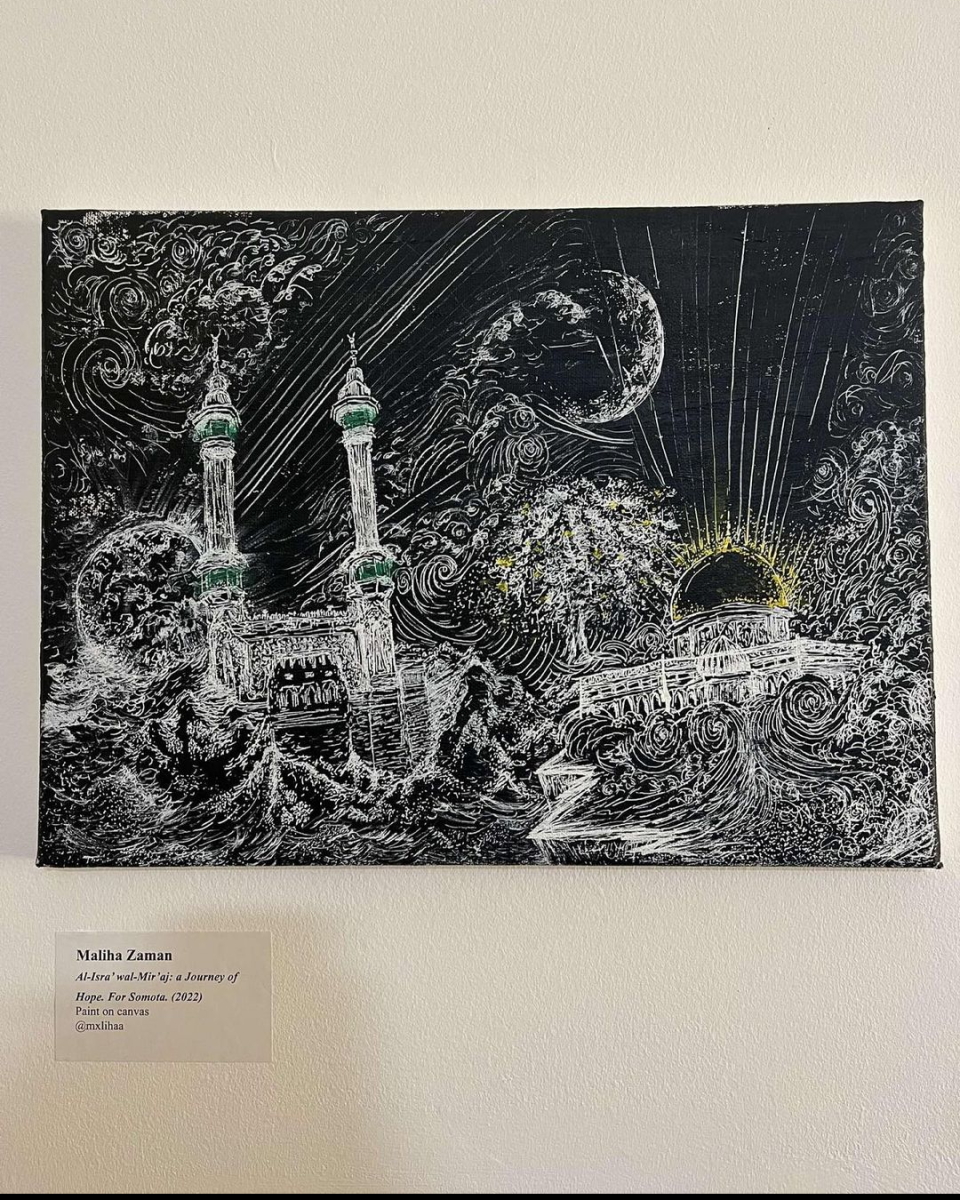

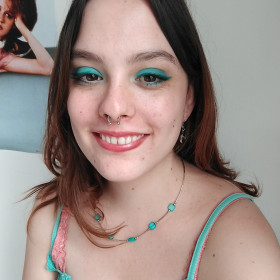
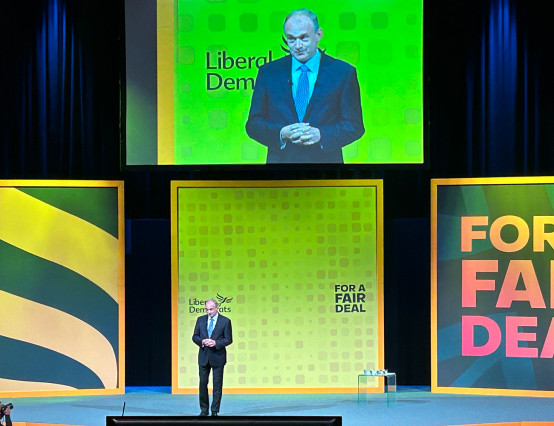
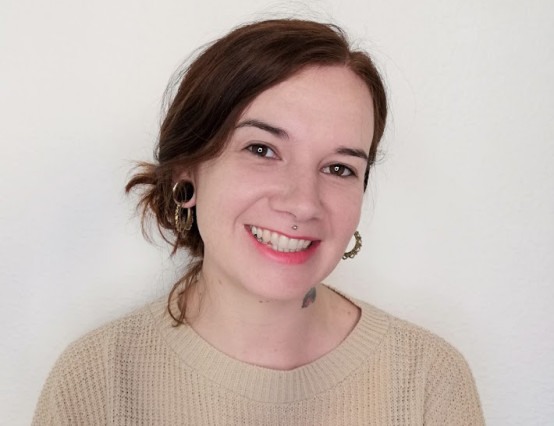
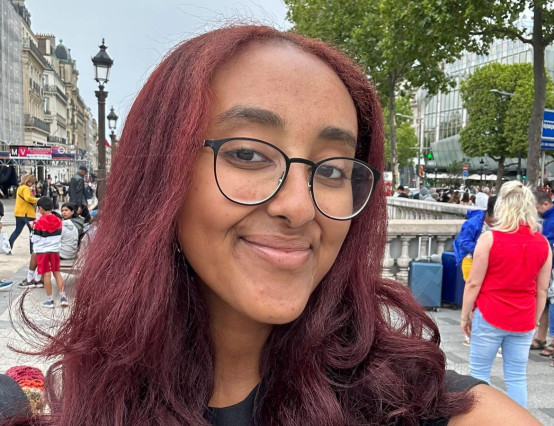
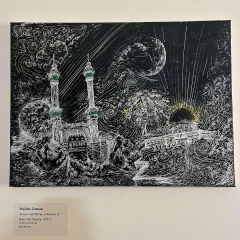


0 Comments